Crystal blue waters, sun, sand and relaxation are what most people picture when they think of the Caribbean—a place where many Canadians go to escape winter and enjoy the warm ocean breezes and culture. However, beyond the tourist attractions and resorts, there are people who need support, no different than any other country in the world.
The Salvation Army Caribbean Territory, under the direction of the territorial leaders, Commissioners Devon and Verona Haughton, shares the love of Jesus, meets human needs and is a transforming influence in communities across 16 countries. It is an active, flourishing Army, with more than 130 corps, 45 outposts and various social services, including children’s homes, schools, feeding programs, seniors’ care and thrift stores. In this photo essay, you will see how this “heart to God, hand to man” approach is serving suffering humanity and bringing hope in Jamaica.
As the Caribbean Territory emerges from the global pandemic, like many other territories around the world, the need for support is greater than ever before. We can see the negative ripple effect that COVID-19 continues to have in people’s lives and communities and beyond their borders. The need is great. The need is real. Please support the Partners in Mission Self-Denial Campaign and help others.
Lt-Colonel Brenda Murray is the director of international development.
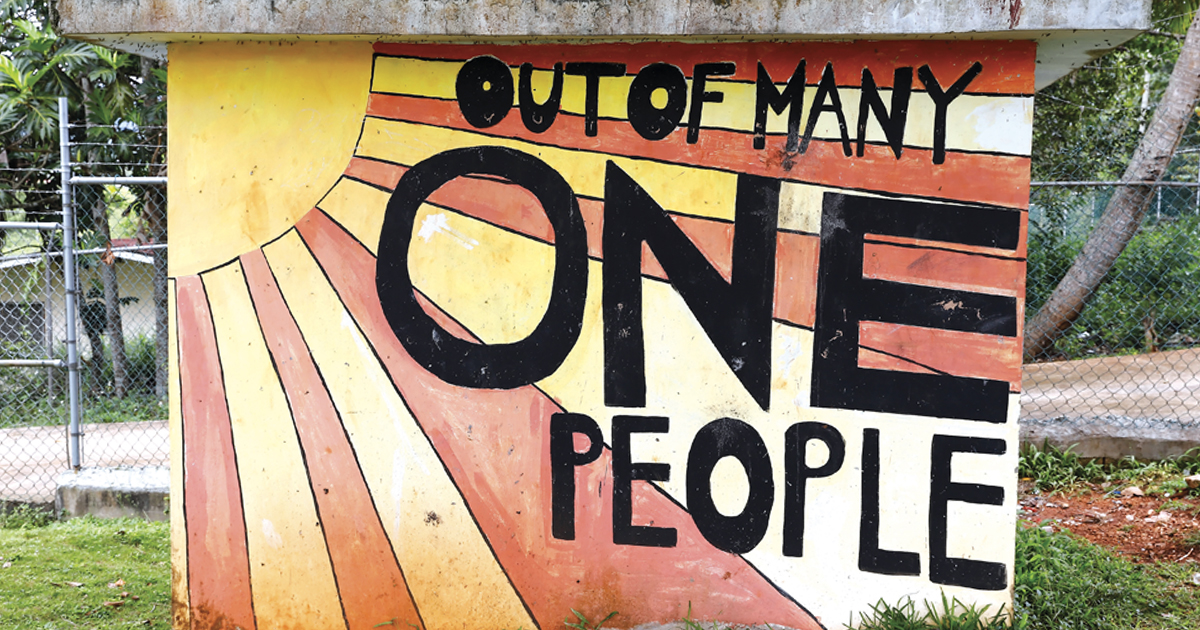
↑ The Jamaican national motto, “Out of many, one people,” was embraced in 1962 and speaks to both the diversity and the unity of the people who have settled in this region of the world. The Caribbean Territory reflects this diversity and embraces an international mission of “One Army, one mission, one message,” which aligns well with the national motto of Jamaica, where the territorial headquarters is found.
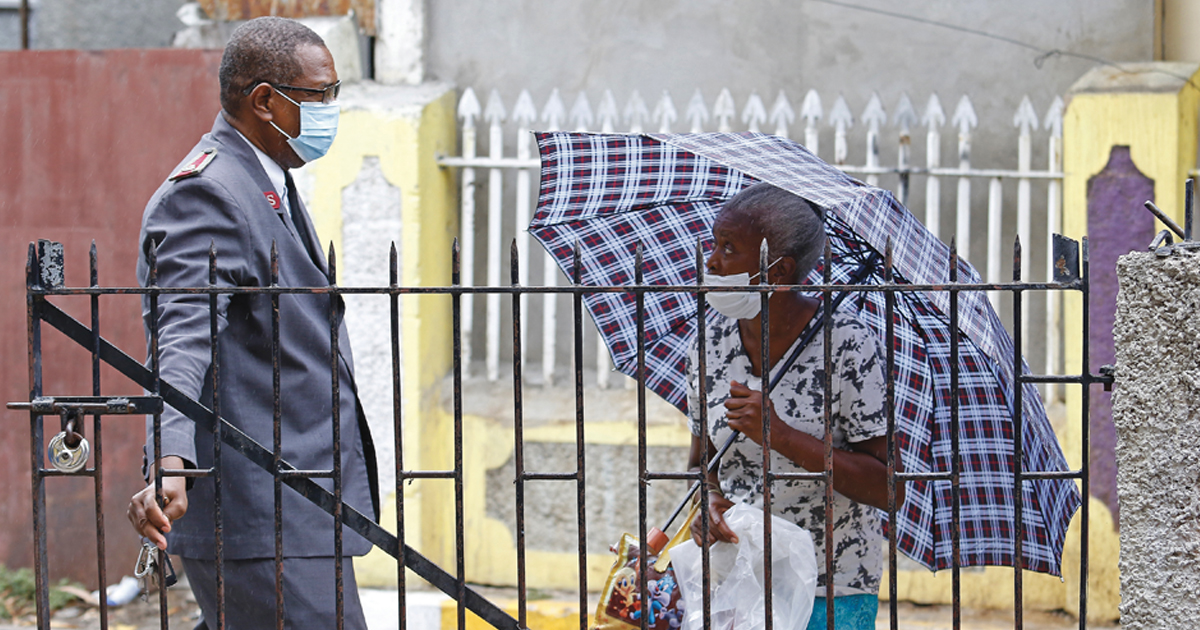
↑ It’s in the brief encounters of life that we build community. Major Henry King (left), territorial finance secretary, strikes up a conversation following a service at the Allman Town Corps. Behind the mask is a caring, compassionate individual who is interested in the well-being of others, as captured in this moment in time.
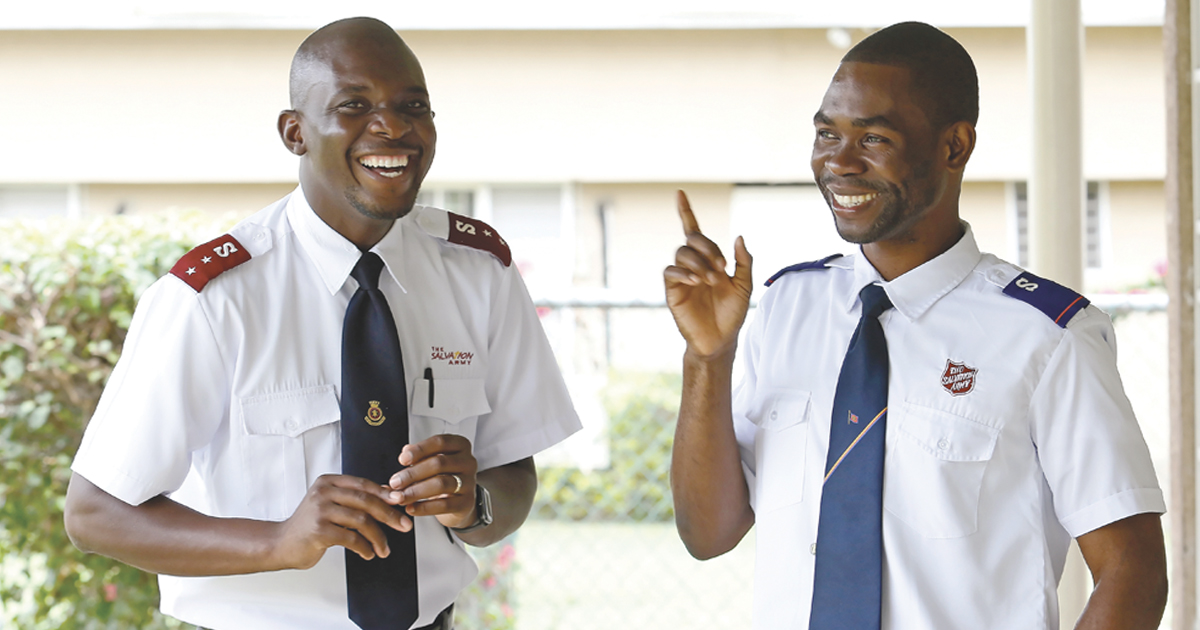
↑ Captain Roliams Leandre (left), field training officer, responds as Cadet Sonel Philogene shares the story of his calling to become a Salvation Army officer. On his first visit to the Santos Corps, Cadet Philogene felt the Lord telling him that this was to be his church home. He gave his heart to the Lord, enrolled as a senior soldier and the journey to officership commenced.
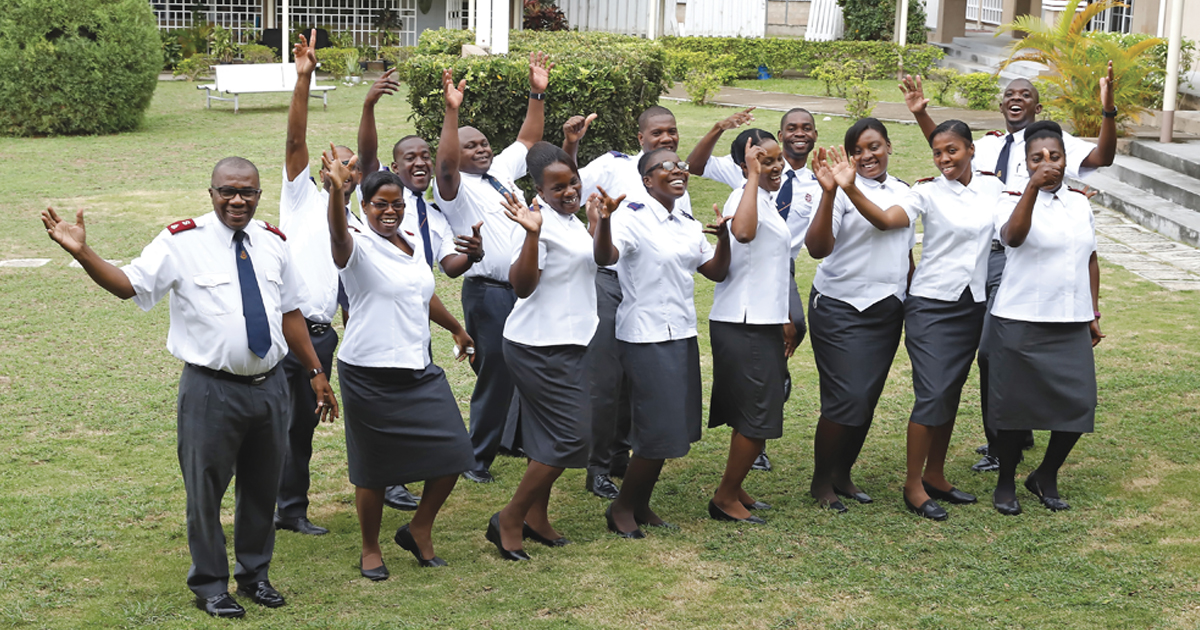
↑ These cadets and officers at the training college in Kingston, Jamaica, exude joy. They have left their homes and employment and responded to the call of Jesus to “follow me.” Now they are part of the Reflectors of Holiness Session, and they are excited to be following Jesus. During morning chapel, deep harmonies echoed throughout the room as the cadets sang a chorus: “Thanks, thanks, I give you thanks, for all you’ve done. I am so blessed, my soul is at rest, O Lord, I give you thanks.”
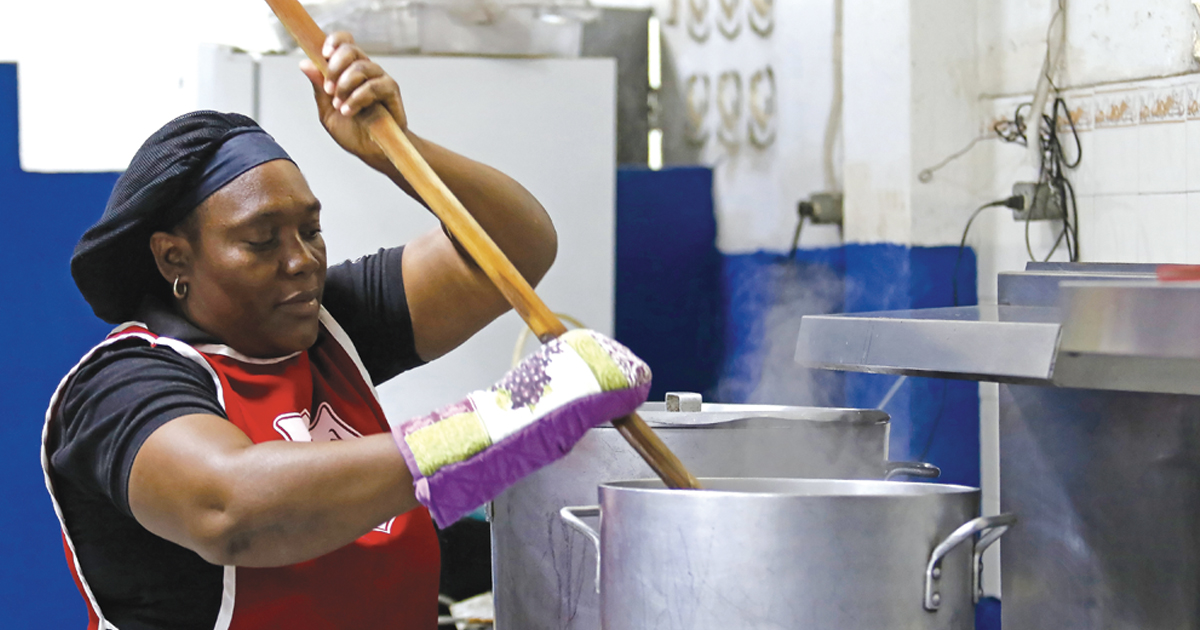
↑ General William Booth, co-Founderof The Salvation Army, strongly believed and modelled that people should be treated with dignity and respect. He said that people living rough needed soup, to look after their immediate needs; soap, to help rid the dirt of the day; and salvation, to hear the saving message of the gospel. More than 150 years later, The Salvation Army in Kingston, Jamaica, is carrying on his mission. At the William Chamberlain Centre, Claudette Heslop prepares a meal for people living on the street. As we gathered in this feeding centre, the delicious smell surrounded us, and the people were warm and friendly. It is an inviting atmosphere.

↑ Jermaine, a carpenter, is employed at the William Chamberlain Centre in Kingston, Jamaica, where he makes and fixes itemsthat have come into the thrift store so they can be sold. Jermaine loves what he does and appreciates that The Salvation Army has hired him for this role. “This centre meets people at their point of need and lifts them to a higher standard,” says Major Selburn Laing, the centre’s administrator.

↑ ”My favourite thing about attending this school is being with my friends, and my favourite subject is social studies because I like to learn about society,” says Nicola, a student at The Salvation Army School for the Blind and Visually Impaired in Kingston, Jamaica, which accommodates up to 110 residential students. The school provides standard curriculum but also teaches necessary life skills, including mobility, keyboard and computer skills, and Braille.
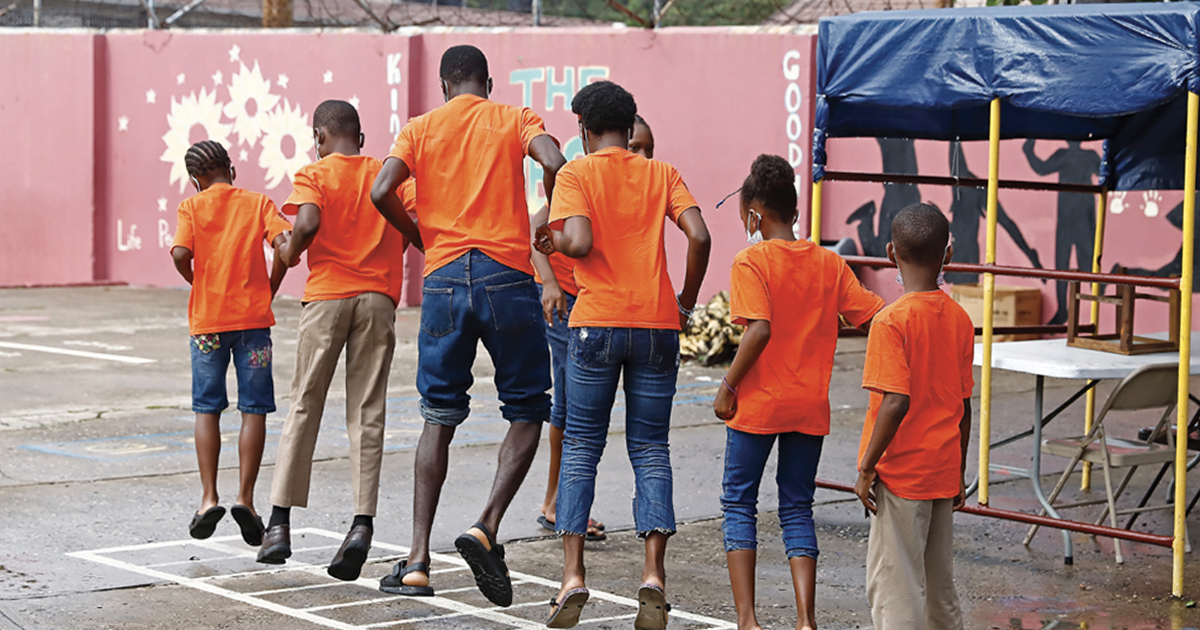
↑ Children come to the Nest Children’s Home for a variety of reasons, but the main need is a safe place to live. This residence provides food, shelter and a caring environment for more than 40 children, aged five to 18. The home provides the foundation that these children need to successfully leap into the future.
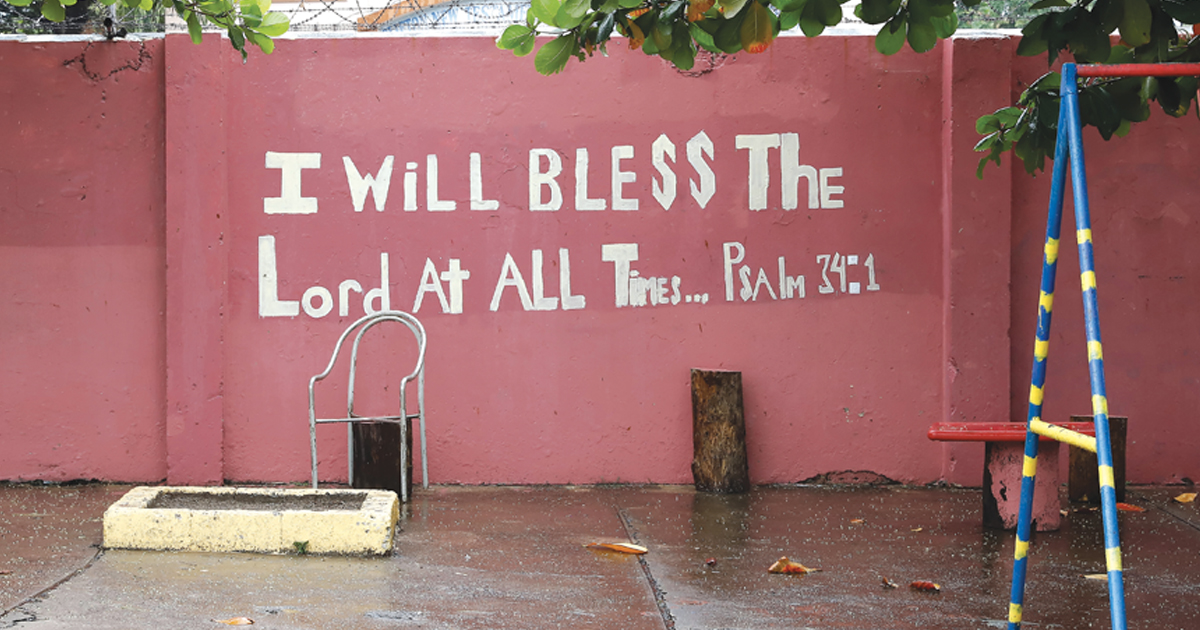
↑ Coming from various backgrounds and situations, the children at the Nest are nurtured in a loving, caring, Christ-centred home. Attending school in the neighbourhood and participating in programs at the local Salvation Army corps, they learn values of kindness, compassion, respect, love and many more. When visiting the home, the children sang a song for us that went like this: “I am a promise. I am a possibility. I am a promise with a capital P. I am a great big bundle of potentiality. And I am learning to hear God’s voice and I am trying to make the right choices. I’m a promise to be anything God wants me to be.”
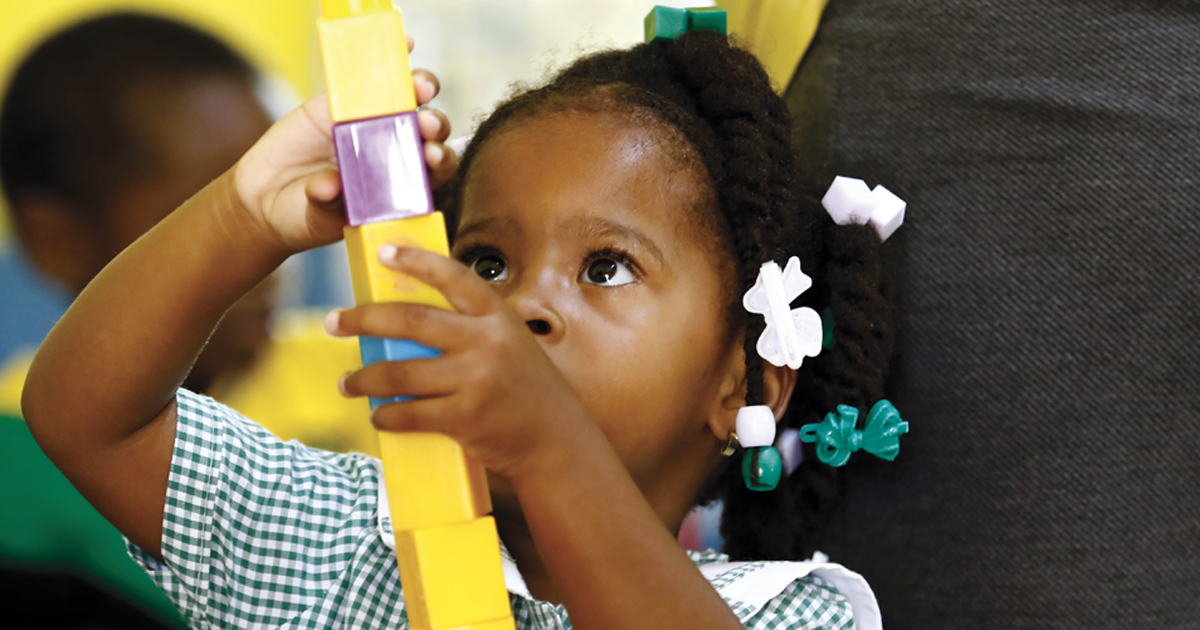
↑ Cave Valley Basic School in Montego Bay, Jamaica, has been preparing young children for elementary school for more than 60 years. Early childhood education, including learning the alphabet, how to write and how to interact with each other in a positive environment, gives children a solid educational foundation and teaches them to reach for the stars. Play is an important part of every child’s life, bringing many life lessons along the way. The Salvation Army Brighter Futures Children’s Sponsorship Program provides children around the world with school fees, uniforms, textbooks and recreational materials.
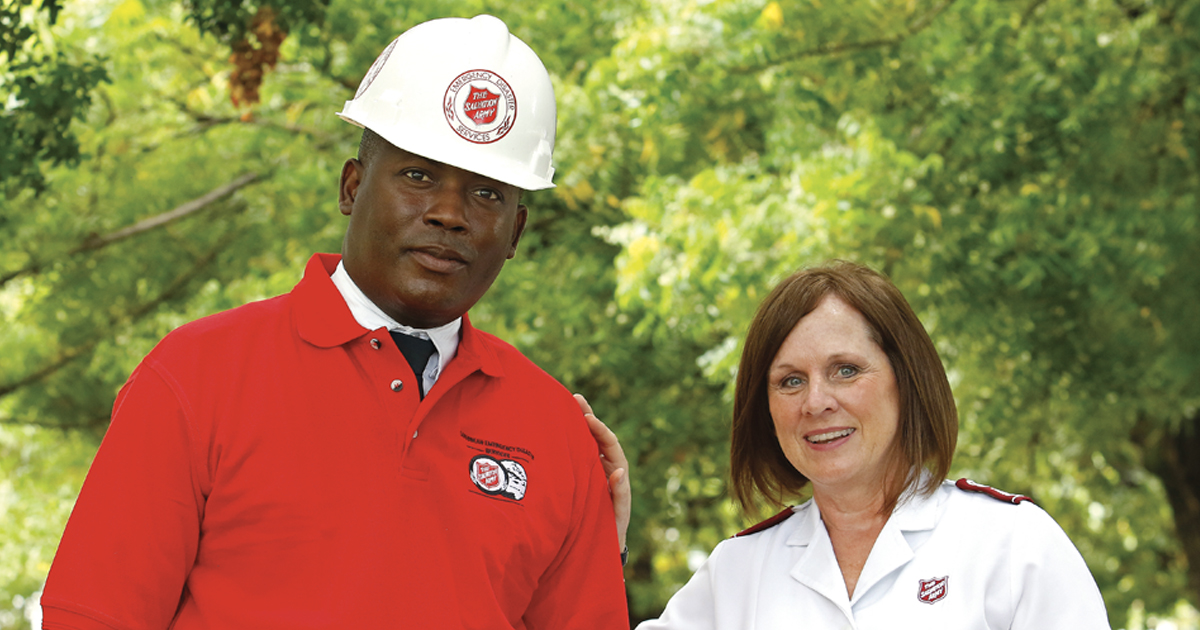
↑ Lt-Colonel Brenda Murray (right), shares a moment with Major Kenel Jean, emergency disaster services co-ordinator and property secretary at territorial headquarters in Kingston, Jamaica. In speaking with MajorJean, it was quickly evident that he loves coming alongside people in times of crisis and co-ordinating a response that meets people at their point of need.
This story is from:










Leave a Comment